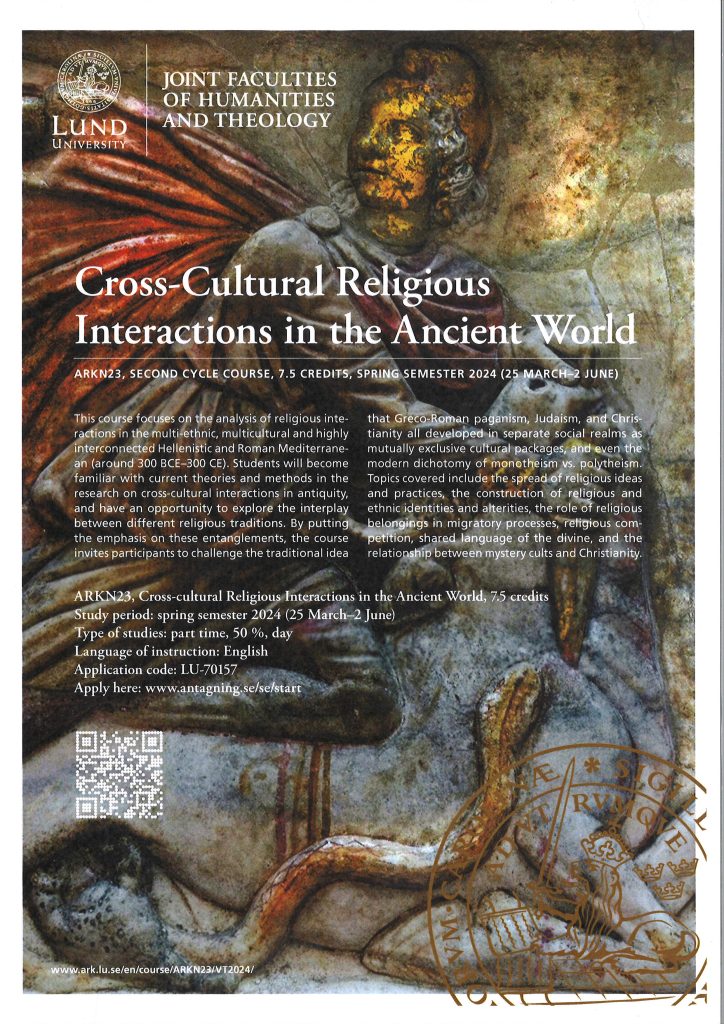We are happy to offer this new course in, created and held by our post-doc in ancient history Beatriz Pañeda Murcia: Cross-cultural Religious Interactions in the Ancient World.
The course aims to analyse interreligious encounters in a multi-ethnic, multicultural and highly interconnected Hellenistic and Roman Mediterranean world (from the 4th century BC to the 4th century AD). Students will have the opportunity to familiarise themselves with current theories and methods in the study of intercultural encounters and religious contacts in antiquity. Through case studies based on literary, epigraphic and archaeological sources, they will also have the opportunity to explore different examples and consequences of interactions between polytheistic and monotheistic traditions. By focusing on religious exchange between religions, students are invited to challenge the traditional historiographical idea that Greco-Roman ’paganism’, Judaism and Christianity developed within separate social spheres as distinct ’cultural packages’, as well as the modern dichotomy between ’polytheism’ and ’monotheism’. Other topics covered in the course include the spread of religious ideas and practices, the construction of religious identities and alienation, the importance of religious affiliation in the context of migration, competition between religions, transnational religious expression and the relationship between mystery cults and Christianity.
The subject of the course stretch over several different disciplines, that’s why the eligibility allows for a bachelor of Classical Archaeology and Ancient History, archaeology, historical archaeology, historical osteology, history, Greek, Latin, history of science and ideas, history of religions, Jewish studies, Old and New Testament exegesis or equivalent knowledge.
Oral and written proficiency in English corresponding to English 6/B from Swedish upper secondary school is a requirement.

